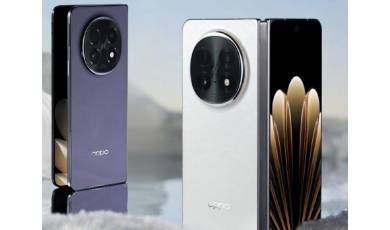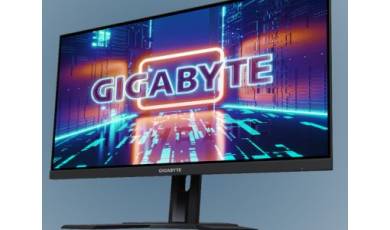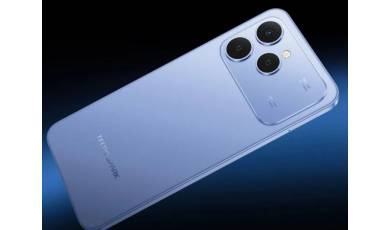LG G7 ThinQ specs.
Mobiles >> LG >> LG G7 ThinQ| Specifications | Reviews | Secret codes |
| Unlock phone | Root phone |
| Backup | Flash Firmware | Screenshot |
| Hard Reset |

Basic Spec LG G7 ThinQ
Smart Phone OS: An operating system (OS) is software that interacts between a user and a smartphone.
An operating system (OS) is software that interacts between a user and a smartphone.
Android 8.0 (Oreo), upgradable to Android 9.0 (Pie)
Chipset: Is a set of chips in the smartphone that control the CPU.
Is a set of chips in the smartphone that control the CPU.
Qualcomm SDM845 Snapdragon 845 (10 nm)
CPU: Central processing unit
Central processing unit
Octa-core (4x2.8 GHz Kryo 385 Gold & 4x1.7 GHz Kryo 385 Silver)
GPU: Graphics Processing Unit
Graphics Processing Unit
Adreno 630
Display LG G7 ThinQ
Type:
IPS LCD capacitive touchscreen, 16M colors
Screen Size: This diagonal display size is usually measured in inches.
This diagonal display size is usually measured in inches.
6.1 inches, 91.0 cm2 (~82.6% screen-to-body ratio)
Screen Resolution: Screen resolution refers to the size of the image received on the screen in pixels
Screen resolution refers to the size of the image received on the screen in pixels
1440 x 3120 pixels, 19.5:9 ratio (~564 ppi density)
Protection:
Corning Gorilla Glass 5
Storage LG G7 ThinQ
Card slot:
microSDXC - single-SIM model
microSDXC - dual-SIM model
microSDXC - dual-SIM model
Internal:
64GB 4GB RAM, 128GB 6GB RAM Random Access Memory
Random Access Memory
Main Camera LG G7 ThinQ
Dual:
16 MP, f/1.6, 30mm (standard), 1/3.1", 1.0µm, PDAF, Laser AF, OIS
16 MP, f/1.9, 16mm (ultrawide), 1/3.1", no AF
16 MP, f/1.9, 16mm (ultrawide), 1/3.1", no AF
Features:
LED flash, HDR, panorama
Video:
2160p@30/60fps, 1080p@30/60fps, 720p@240fps, HDR, 24-bit/192kHz stereo sound rec.
Selfie camera LG G7 ThinQ
Single camera:
8 MP, f/1.9, 26mm (wide)
Video:
1080p@60fps
Sound LG G7 ThinQ
Loudspeaker:
Yes
3.5mm jack:
Yes
Network connectivity LG G7 ThinQ
Technology:
GSM / CDMA Code Division Multiple Access / HSPA
Code Division Multiple Access / HSPA High Speed Packet Access / LTE
High Speed Packet Access / LTE
2G: Second generation cellular network
Second generation cellular network
GSM 850 / 900 / 1800 / 1900 - SIM 1 & SIM 2 (dual-SIM model only)
3G: Third generation cellular network
Third generation cellular network
HSDPA High-Speed Downlink Packet Access 850 / 900 / 1900 / 2100 - Global
High-Speed Downlink Packet Access 850 / 900 / 1900 / 2100 - Global
4G: Fourth generation cellular network
Fourth generation cellular network
LTE band 1(2100), 3(1800), 4(1700/2100), 5(850), 7(2600), 8(900), 12(700), 17(700), 20(800), 28(700), 32(1500), 38(2600), 40(2300), 42(3500), 46(5200) - Global
Speed:
HSPA High Speed Packet Access 42.2/5.76 Mbps, LTE-A (3CA) Cat16 1024/150 Mbps or Cat15 800/150 Mbps (region dependant)
High Speed Packet Access 42.2/5.76 Mbps, LTE-A (3CA) Cat16 1024/150 Mbps or Cat15 800/150 Mbps (region dependant)
WLAN: Wireless Local Area Network
Wireless Local Area Network
Wi-Fi 802.11 a/b/g/n/ac, dual-band, Wi-Fi Direct, DLNA, hotspot
Bluetooth: Bluetooth is used to exchange data between nearby mobile devices.
Bluetooth is used to exchange data between nearby mobile devices.
5.0, A2DP, LE, aptX HD
GPS: Global Positioning System
Global Positioning System
Yes, with A-GPS Assisted Global Positioning System, GLONASS
Assisted Global Positioning System, GLONASS GLObal NAvigation Satellite System, BDS
GLObal NAvigation Satellite System, BDS
NFC: Near field communication
Near field communication
Yes
Radio:
FM radio
USB: Universal Serial Bus
Universal Serial Bus
3.1, Type-C 1.0 reversible connector, USB On-The-Go
Phone features LG G7 ThinQ
Sensors:
Fingerprint, accelerometer, gyro, proximity, compass, barometer
Battery LG G7 ThinQ
Battery:
Non-removable Li-Po 3000 mAh battery
Charging:
Fast battery charging 18W (Quick Charge 3.0)
WPC&PMA wireless charging (US version only)
WPC&PMA wireless charging (US version only)
Size LG G7 ThinQ
Dimensions:
153.2 x 71.9 x 7.9 mm (6.03 x 2.83 x 0.31 in)
Weight:
162 g (5.71 oz)
Build:
Glass front (Gorilla Glass 5), glass back (Gorilla Glass 5), aluminum frame
SIM:
Single SIM (Nano-SIM) or Hybrid Dual SIM (Nano-SIM, dual stand-by)
Comments, Questions and Answers about LG G7 ThinQ
| Christopher Macwillie | November 23, 2025 | |
| I forgot my knock code so i cannot unlock the phone | ||
Ask a question about LG G7 ThinQ





